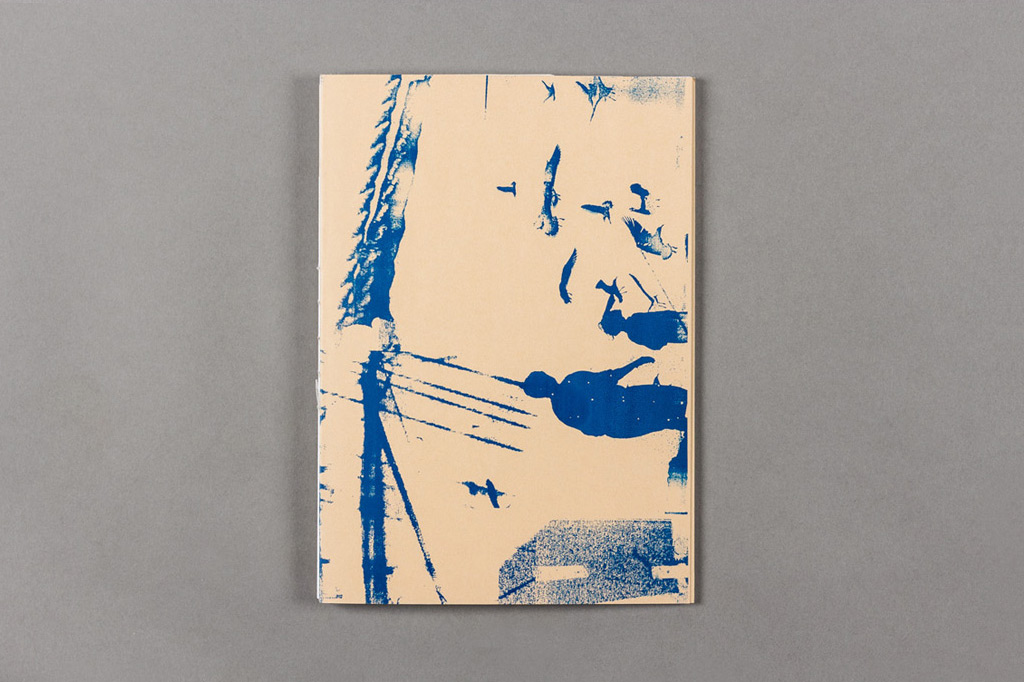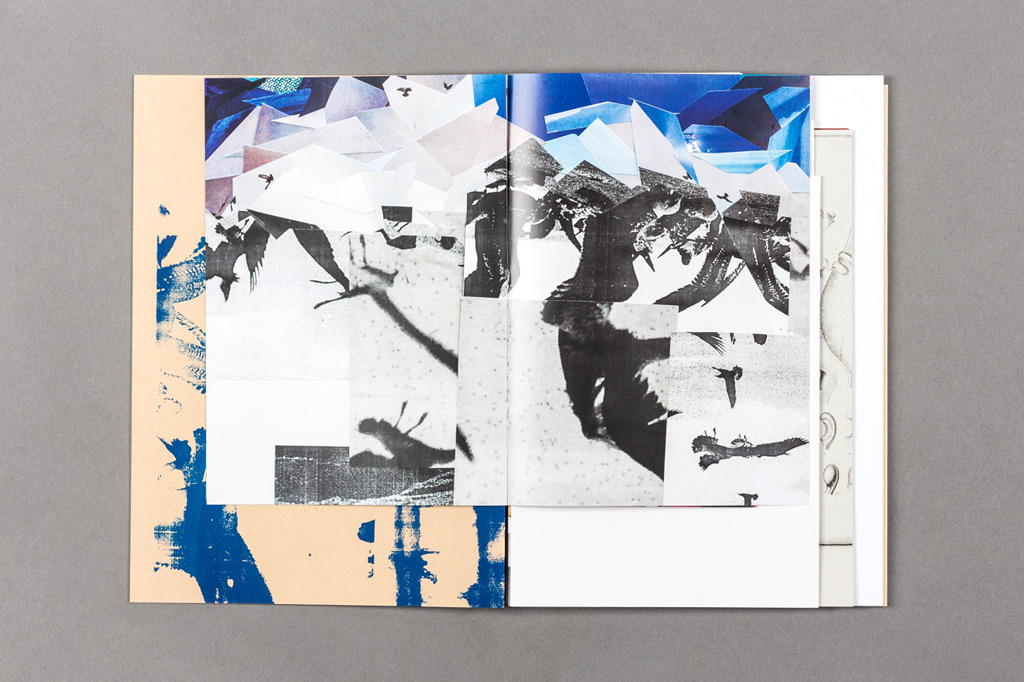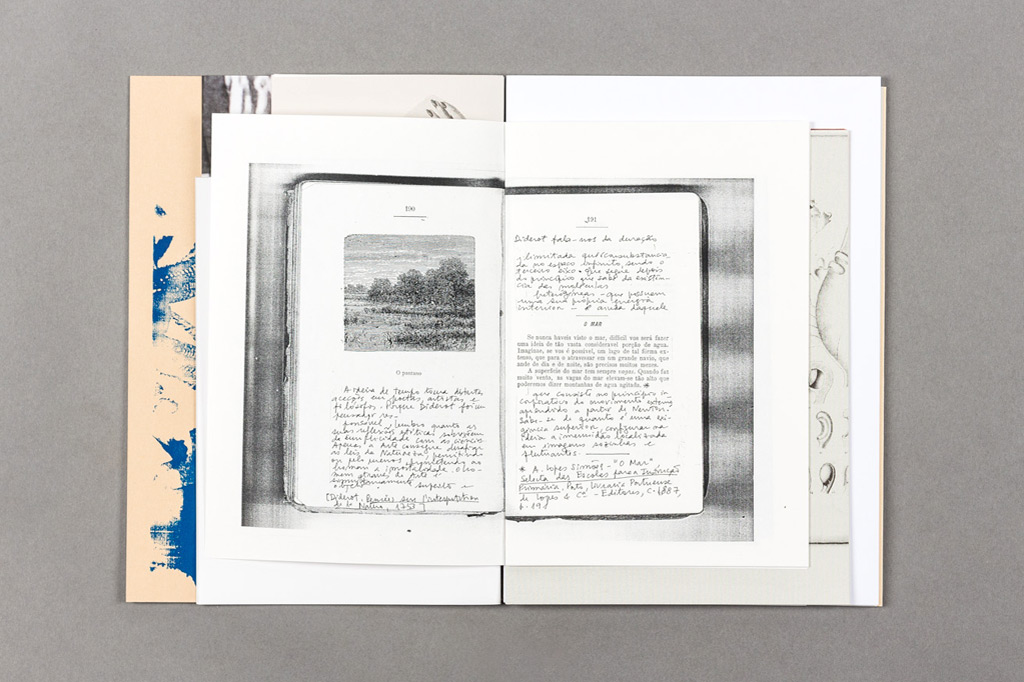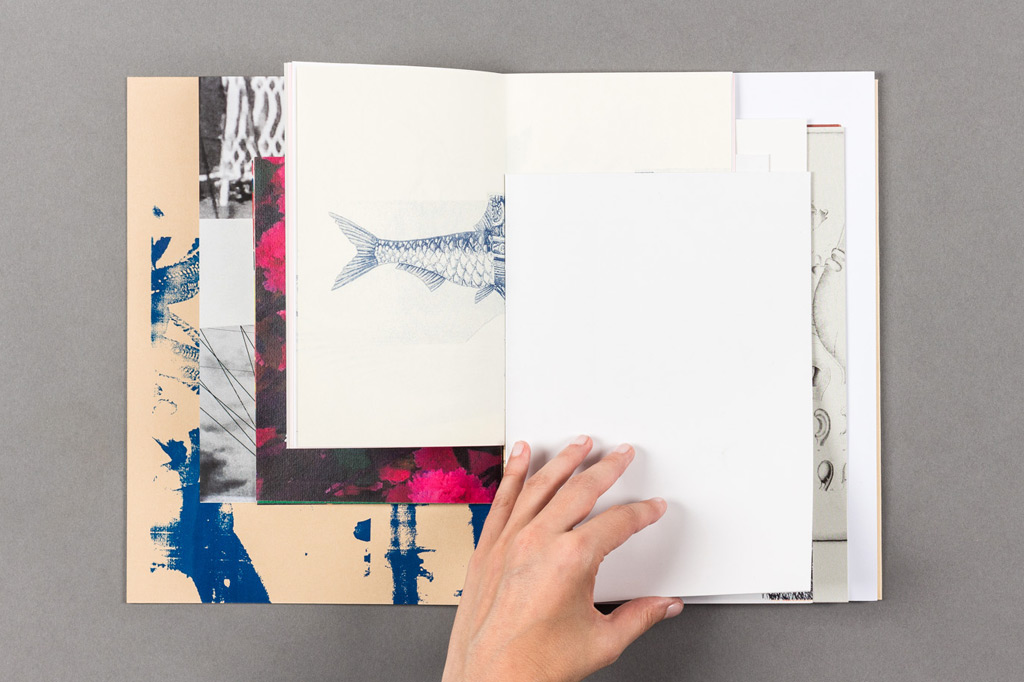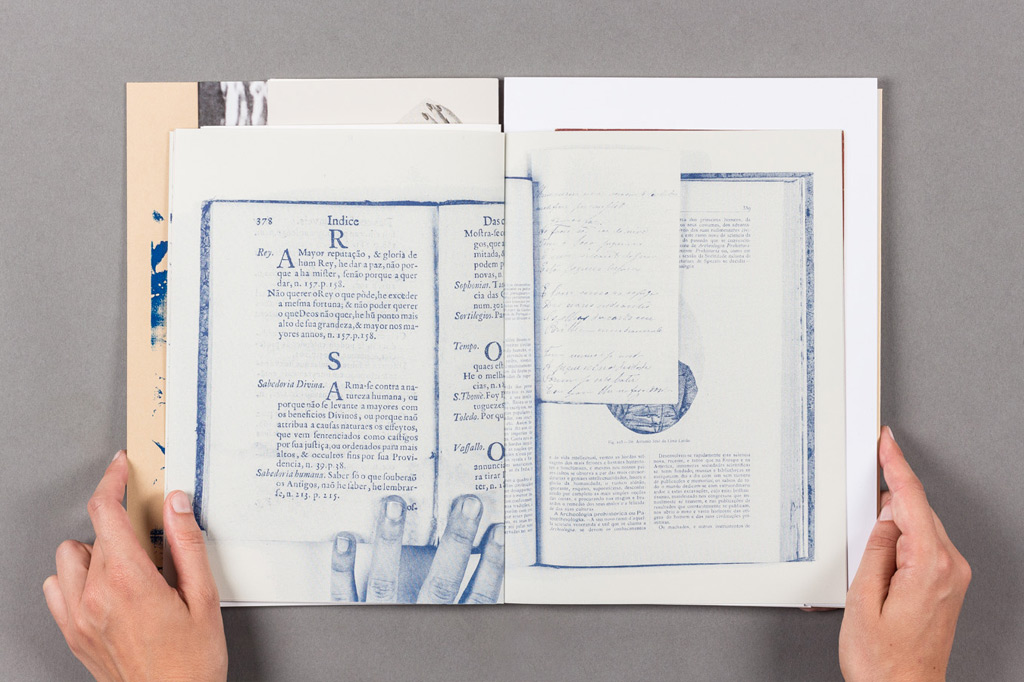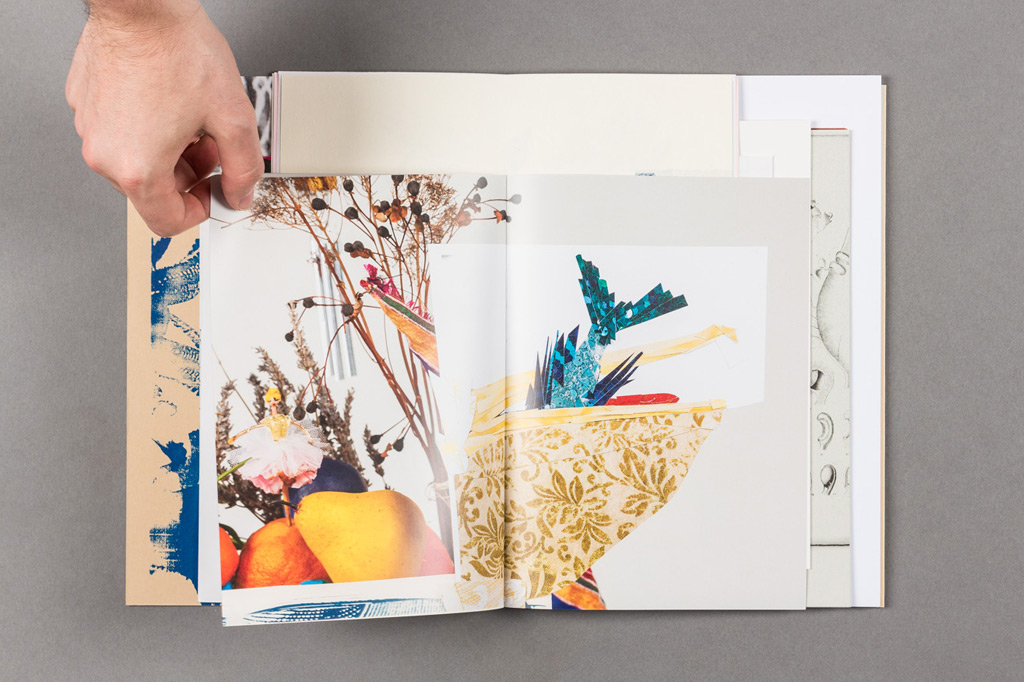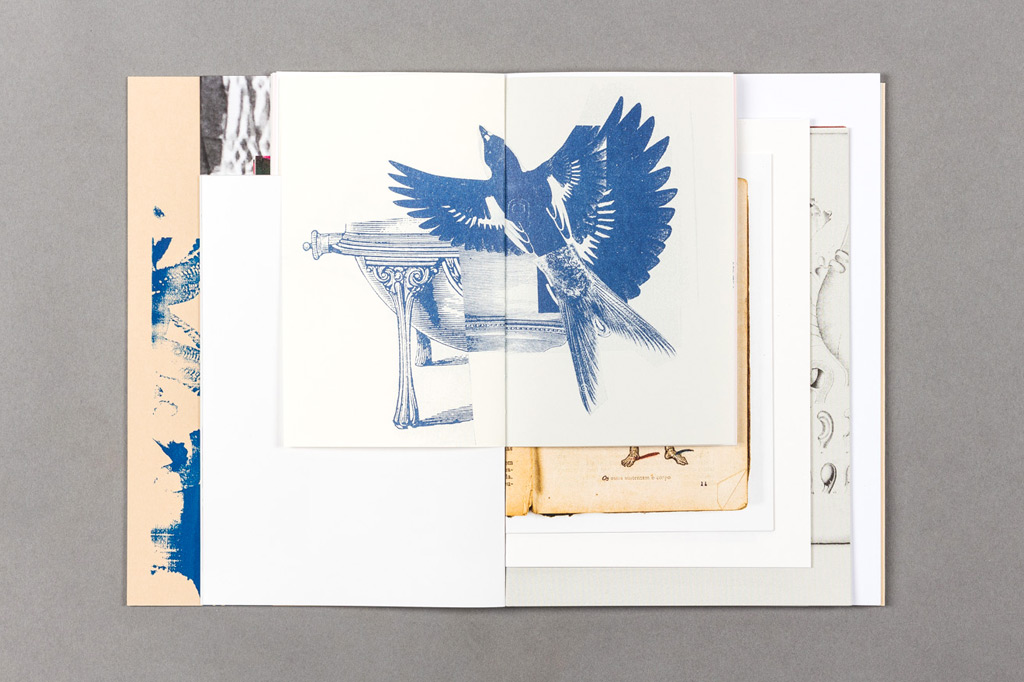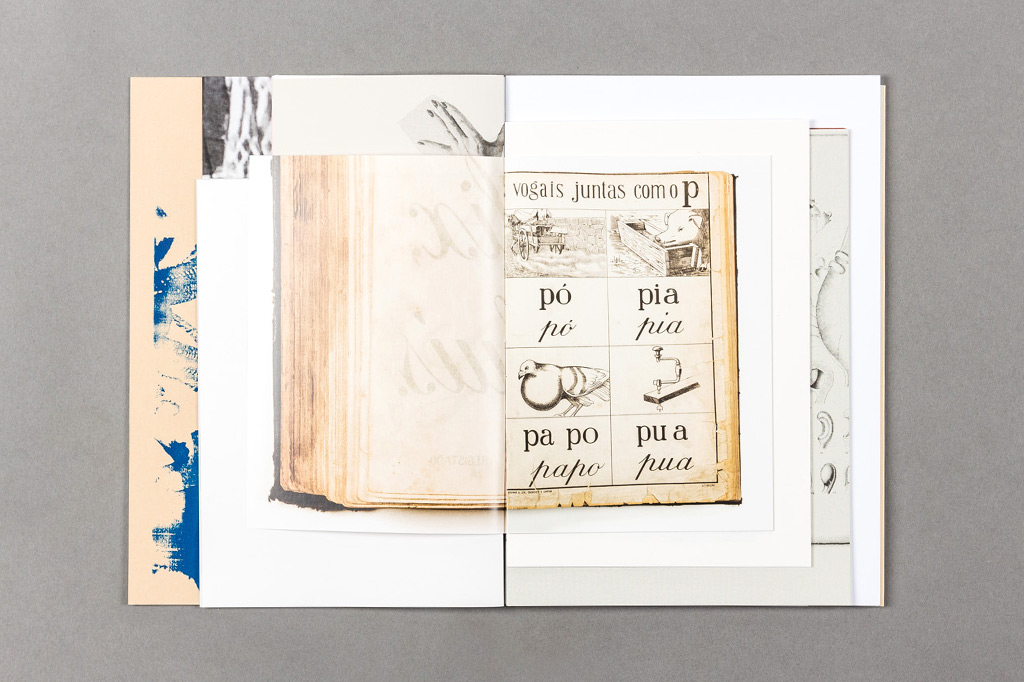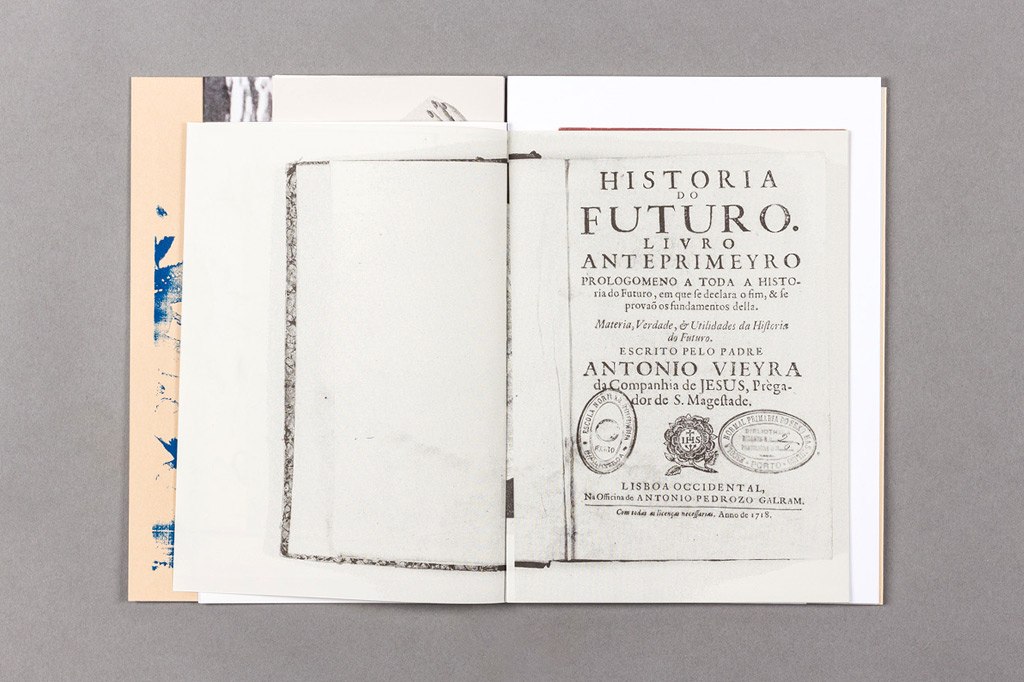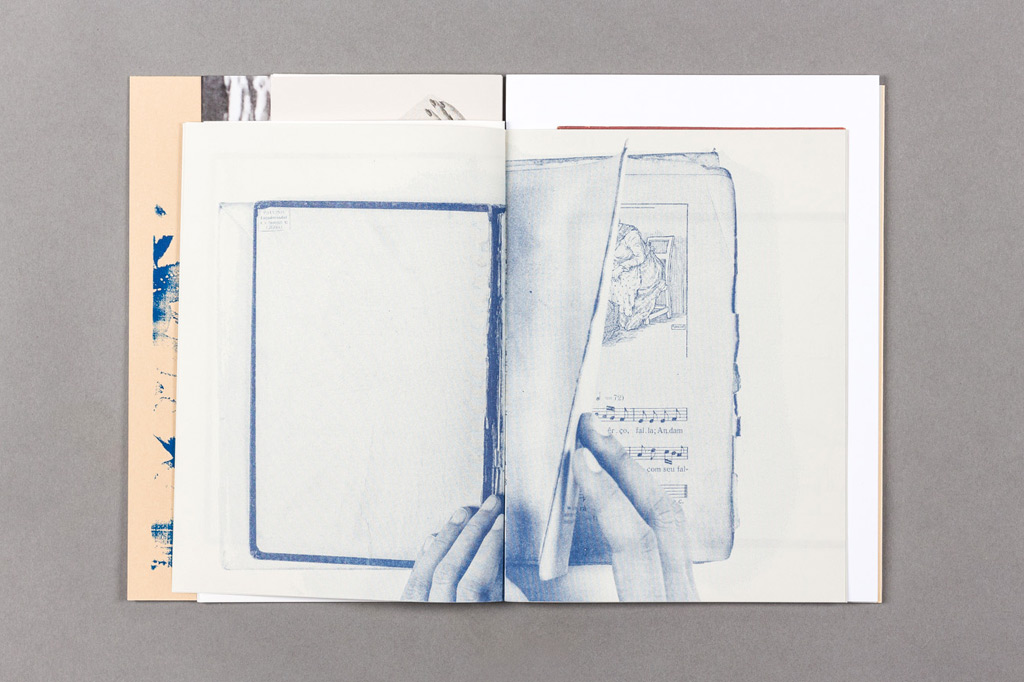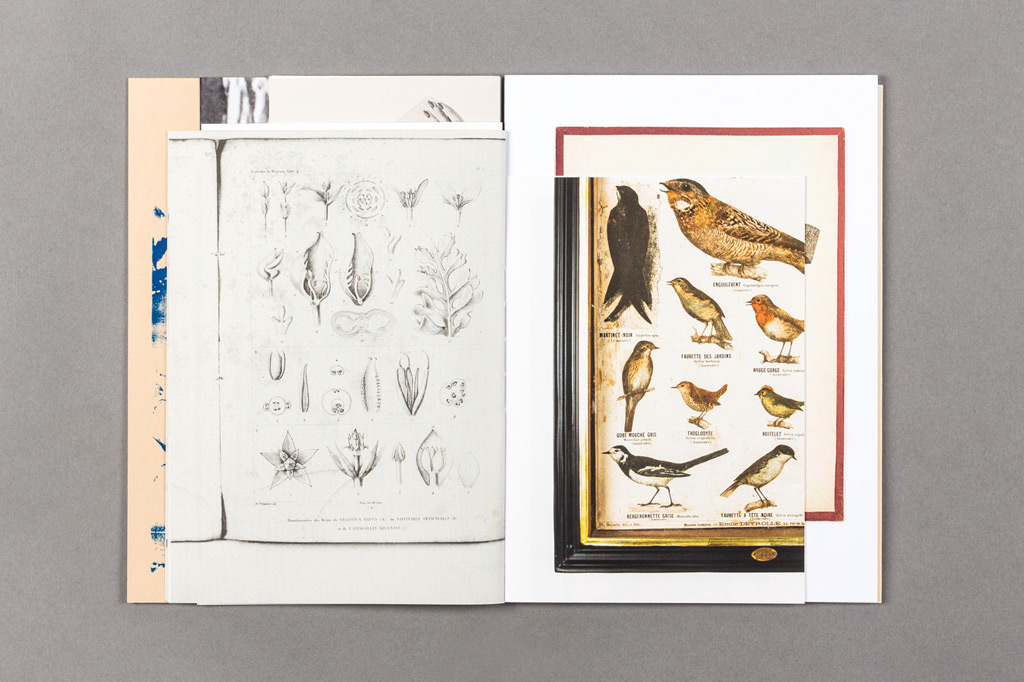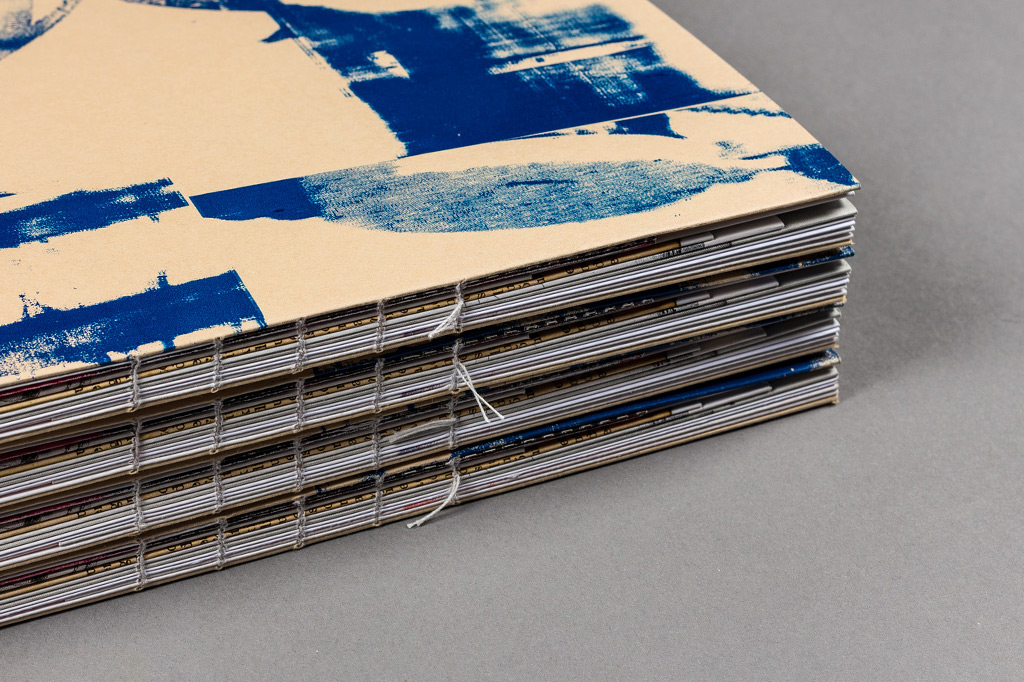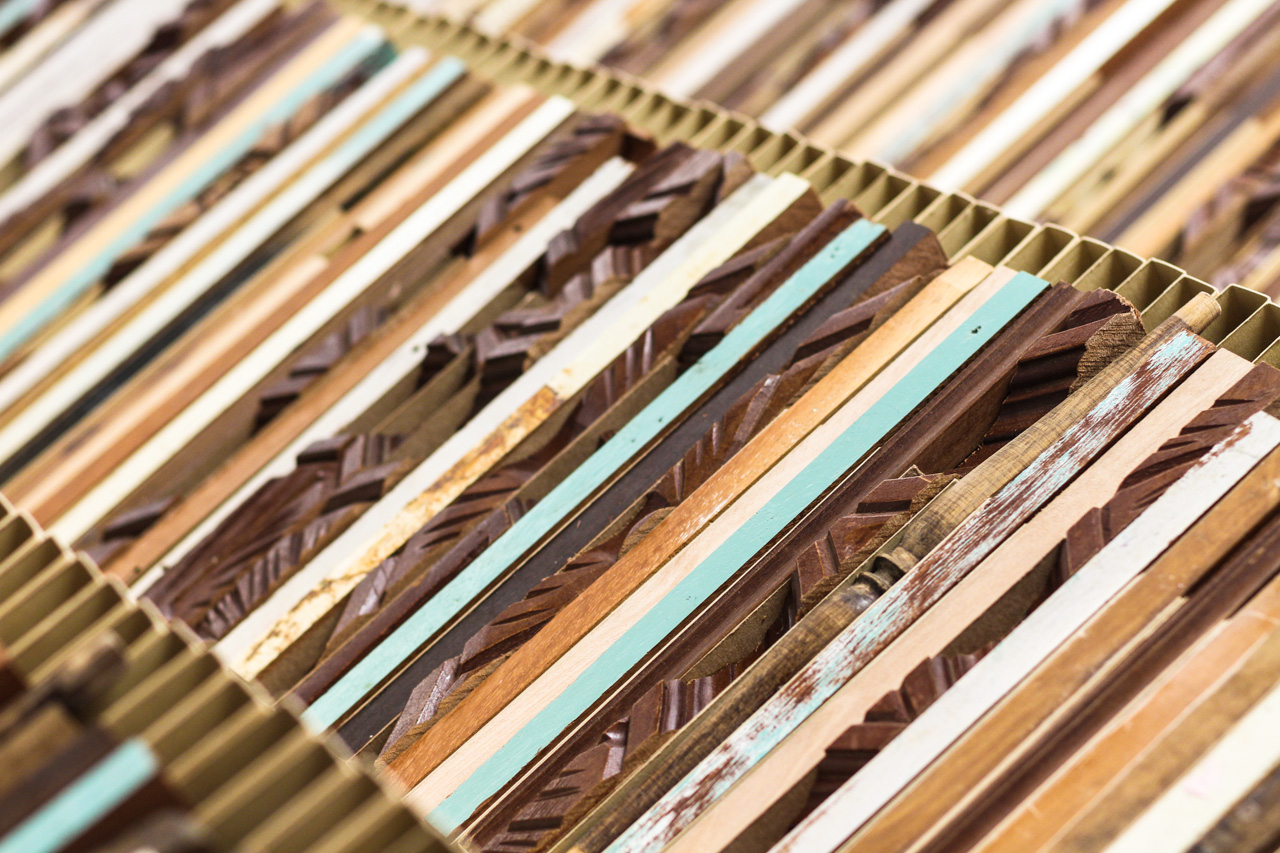This publication is the result of a 5-month artist residency at the Porto Polytechnic Institute (Porto, Portugal) by the Canadian illustrator and designer Karen Lacroix (Uncanny Editions), in 2015. It consisted of a research project that used a variety of printing techniques to investigate, interpret and communicate the Institute’s history, in order to commemorate its 30th anniversary.
To read this publication, it is important to understand Uncanny Editions’ way of working and the relevance this has in its output. Collage is a central method used throughout the research process—collecting images, relating, juxtaposing and manipulating them in order to reveal connections and create new meanings. The Institute has 7 schools, covering a multitude of disciplines such as engineering, accounting, administration, health sciences, education, music, performing arts, management, industrial studies and technology. This publication embraces this diversity by displaying the results of numerous visits to the schools’ different locations, buildings and the extremely rich archives, often spanning hundreds of years.
Framed biology instructional prints are therefore mixed with documented objects scattered in chaotically organised boxes, and surreal centrepieces are reconstructed in the photo studio with the help of students, staff and faculty. The collaborative aspect of production is also important in the context of Uncanny Editions’ work, as workshops held during the residency helped generating work documented here, involved the Institute’s community and invoke the group work that takes place on a daily basis. Accordingly, the different sections of the publication sought to adapt to the subject they were illustrating and make use of the Institute’s facilities. Therefore, it is possible to observe different materials, sizes and printing techniques such as offset, screen-printing, RISO, cyanotype, letterpress and digital printing.
Finally, this publication is not chronological, nor is it divided into schools or even disciplines. It is a journey of overlapped meaning and history—an assemblage of discussions and discourses, and with traces of the past with proposals for a continuous collaboration and education. Fragments of text promote connections between images, schools and ideas. This publication is a celebration and a way of thinking. It has no beginning and no end.
Details
29.7 x 21 cm, 178 pp. ISBN: 978-9728969127
Buy here. (EU and International Shipping)
Note: for countries not listed, please contact us by e-mail.


